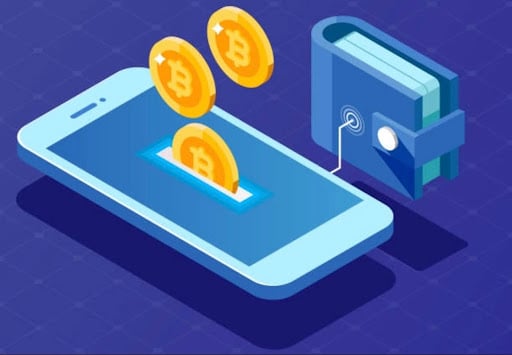Crypto
MicroStrategy Makes Next Big Step With Bitcoin Advocate Search

MicroStrategy, a big name in software and a leader in Bitcoin adoption among companies, is making big moves to bring cryptocurrency into its business even more. The company recently announced it is looking for a manager of Bitcoin Advocacy and this role is all about boosting its Bitcoin development and advocacy initiatives.
This key position will be in charge of planning and executing MicroStrategy’s annual Bitcoin conference and leading internal and external educational initiatives to encourage corporate adoption of the cryptocurrency.
The chosen candidate will spearhead advocacy efforts to strengthen the company’s position in the Bitcoin community. They will also work with different teams to make the most of partnerships and contribute to creative marketing campaigns.
MicroStrategy’s Bitcoin hub
One of the main tasks will be setting up a Bitcoin hub at MicroStrategy’s office in the capital of the USA, Washington, D.C. This hub will make it easier for people to work together, provide a place to work together, host meetups among developers of Bitcoin and arrange corporate seminars focused on cryptocurrency education, aimed at increasing awareness on university campuses.
The role also includes developing marketing plans for Bitcoin projects, supporting finance activities like investor relations and market research and improving internal training for employees on the matter.
The ideal candidate is someone with over five years of experience in event management, advocacy, or marketing, ideally with a focus on Bitcoin or technology. A strong understanding of the cryptocurrency landscape and an established network within the BTC and blockchain communities are essential, says the announcement.

Crypto
HIVE Digital’s move highlights Texas’ renewed rise as a crypto hub

HIVE Digital, a publicly traded cryptocurrency mining firm, announced this week that it will relocate its headquarters from Vancouver to San Antonio, citing support from President-elect Donald Trump’s administration for the crypto industry’s growth as a key factor in the decision.
The company described the move as a strategic response to Trump’s re-election, highlighting the administration’s pro-Bitcoin stance and its focus on innovation and regulatory frameworks for the cryptocurrency ecosystem.
“The United States offers a competitive and business-friendly regulatory environment, along with access to capital markets,” the company said. “Texas, in particular, stands out for its supportive business climate, energy infrastructure, and skilled workforce.”
The shift underscores the growing interest in cryptocurrency and related businesses.
Cryptocurrency is a digital form of currency, such as Bitcoin, that operates independently of a central authority or government. Bitcoin lets people send money directly to each other without a bank, using a secure technology called blockchain.
Following China’s 2021 ban on crypto mining, U.S. mining activity surged, with Texas emerging as the top destination for large-scale operations.
Cryptomining is the process of using computer power to solve complex mathematical problems in order to validate transactions and secure a cryptocurrency network, earning new coins as a reward.
However, the rise of cryptomining in Texas has also sparked concerns. Critics argue that industrial-scale Bitcoin mining is driving up energy prices and straining the state’s power grid. Local politicians have raised alarms about the environmental impact and potential risks to the state’s energy infrastructure.
In addition to its favorable regulatory environment, HIVE emphasized the U.S. is a hub for funding opportunities.
“The U.S. capital markets, with their $40 trillion capitalization and daily trading volumes of $500 billion, offer unparalleled liquidity, visibility and growth potential,” said Frank Holmes, executive chairman of HIVE.
Korok Ray, a cryptocurrency researcher and associate professor at Texas A&M University, welcomed the move.
“Bringing more Bitcoin mining to Texas is a positive development for the state,” he said. “It proves that a favorable regulatory regime for this new technology attracts business. Texas lawmakers should continue to support Bitcoin, following the lead of Senator Ted Cruz.”
The move to San Antonio is expected to contribute further to the region’s growing reputation as a crypto-friendly destination.
Andy Gonzalez, co-founder of the San Antonio Crypto Network — a grassroots group focused on cryptocurrency education and long-term local investment — believes the recent resurgence in interest was inevitable once Wall Street began backing Bitcoin.
Gonzalez agreed that HIVE’s move to San Antonio is a good sign for the industry, which he said is a boon for Texas.
He added that while he understands the energy concerns some state residents have voiced, recent technological developments have seen mining centers also help the state have a surplus of stored energy, which could prove to be useful to the grid during times of high demand.
“If the government is pro-Bitcoin we’re all better for it,” he said. “Otherwise the tech and the dollars it brings goes elsewhere — to whoever embraced it.”
Crypto
120% growth! Bitcoin outperformed most asset classes last year — will the momentum sustain for cryptos in 2025? | Stock Market News

Bitcoin, the world’s biggest cryptocurrency, demonstrated 120 per cent growth in 2024, outperforming most asset classes. However, its record-breaking run slowed at the end of 2024 and into the New Year 2025, leading to the token’s first monthly drop since August 2024, according to a Bloomberg report.
Bitcoin slipped 3.2 per cent in December as investors began cashing profits following the sustained rally in the lead-up to the inauguration of Donald Trump as the 47th president of the United States on January 20, 2025.
Bitcoin Outperformed Gold, Equities
The Trump-backed crypto fever pushed Bitcoin to an all-time high of $108,315 mid-December before US Federal Reserve decisions cooled the high. Still, the cryptocurrency has notched a 120 per cent gain through 2024, outperforming gold and global equities, as per the report. Bitcoin has also more than doubled in 2023 in a “comeback,” the report added. Interestingly, cocoa was among the few assets that beat even the crypto comeback.
And while investors and market watchers largely dipped into the Bitcoin pie, other crypto tokens also saw an influx. Meme-favourite Dogecoin rose 253 per cent—for example, a $10,000 investment in the token would have netted one $35,345 in return.
New All-time Highs?
- Edul Patel, CEO and co-founder, Mudrex, told Livemint that the outlook for 2025 is “even more promising” than 2024 due to the pro-crypto leadership at the SEC, CFTC, and the US White House working towards crypto-friendly regulations. “With better regulatory clarity from the US, the institutional interest in crypto is set to get stronger, bringing in higher inflows into the ETFs. On the other hand, countries like China, Canada, EU nations, and the Middle East are easing restrictions, creating a healthy environment for wider crypto adoption. These developments create a strong pipeline for the crypto industry, making 2025 a critical year in taking crypto investing mainstream. As adoption increases and the market matures, Bitcoin could potentially reach $150,000 by the end of the year, creating new milestones for the industry,” he added.
- Dr Sujata Seshadrinathan, Director of IT and Process, Basiz Fund Services, told Livemint she sees expectations from analysts for Bitcoin reaching life-time highs of $190,000-$200,000 in 2025. The Indian markets, she felt will see some large crypto trading platforms re-entering with due compliance to relevant government regulations. “Overall, 2025 could see regulatory clarity and protocols being established for the use of cryptocurrencies. This will mean moderation and controlled fluctuations in prices, with investor protection and institutional adoption moving well ahead on an upward trajectory,” Dr Seshadrinathan said.
- Kumar Gaurav, founder of Cashaa, speaking to Livemint echoed sentiments of Bitcoin surpassing the $150,000 level. “In 2025, I expect Bitcoin to conservatively surpass at least $150,000, fueled by increased institutional adoption, the approval of spot ETFs, and its strengthening role as a hedge against economic uncertainties,” he said. Gaurav also anticipates growth in the broader crypto markets and an increase in real-world applications. “I believe 2025 will mark a transformative year for crypto, positioning it as a cornerstone of the global financial system and accelerating mass adoption,” he stated.
Disclaimer: The views and recommendations made above are those of individual analysts or broking companies and not of Mint. We advise investors to check with certified experts before taking any investment decisions.
Crypto
Best Crypto Wallets to Buy New Cryptocurrency Assets Pre Launch

The possibility of a mega bull run happening this year has rekindled investors’ interest in the crypto market.
The previous year – 2024 – was remarkable for cryptocurrency, with Bitcoin and top altcoins like Solana, Ethereum, XRP, and even Pepe achieving new heights.
In fact, at the peak of the positive market outlook, Bitcoin crossed the monumental $100k milestone and even reached a new peak of $108k before a retracement.
Stepping into 2025, the crypto market is expected to build on this strong momentum, with experts projecting a bigger and prolonged bull run than the one witnessed in the fourth quarter of 2024.
However, as the escalating momentum of the next bull run continues to shake up the entire market, the spotlight is gradually shifting from Bitcoin and other well-established cryptos like Ethereum and shining on new cryptocurrency assets with high-growth potential.
This is no surprise as these new cryptocurrency assets present a bigger opportunity for investors to maximize the bull run and optimize their returns.
That being said, finding the right new crypto launches can sometimes be difficult, given the complex nature of the industry and the fact that there are thousands of options available.
With this in mind, we identify the best wallets to find and buy new cryptocurrency assets before they go mainstream.
Best Crypto Wallets to Buy New Cryptocurrency Assets
For those looking to gain early exposure to new cryptocurrency assets, here are the two top wallets to try out:
Best Wallet
Thanks to its groundbreaking “Upcoming Tokens” feature, Best Wallet has fully changed how investors have long interacted with assets still in their pre-launch stages. This standout functionality, which is powered by its presale aggregator, simplifies the whole process of finding and investing in highly promising new cryptos.
At its core, Best Wallet’s “Upcoming Tokens” feature filters legitimate pre-launch cryptos, presales, and even new direct-to-DEX launches and alerts investors so that they can get in early and make the most profit.
More so, through the industry-standard feature, users are able to access important information about each of the featured projects, especially their tokenomics, roadmap, pricing, and many more, eliminating all the hurdles in finding the right investment opportunities. It also provides countdowns and handy notifications on upcoming events like DEX launch so that investors can be abreast of deadlines.
To streamline investors’ experience and ensure that they do not end up on fake websites, Best Wallet, through its “Upcoming Tokens” mechanism, also makes it possible to buy these new cryptocurrency assets within the app with just a few clicks. There is also a robust portfolio facility where investors can effectively manage and grow their new tokens in a single app.
With the next bull run likely to unfold this year, there may not be a better time than now for investors to download the Best Wallet app and maximize its “Upcoming Tokens” functionality to strengthen their portfolios.
Since the addition of the innovative feature to the wallet app, Best Wallet has been consistent in identifying high-potential projects for investors, with some of the recent features, especially Pepe Unchained and Catslap emerging among the top performers.
Pepe Unchained, a Pepe-inspired meme coin with a Layer-2 functionality, became the biggest crypto presale of 2024, having raised over $73 million from early movers. Following its Uniswap listing, the token exploded on the price charts, crossing the $500 million market valuation benchmark within a few days before a dip. With major CEX listings still on the way for the token, experts say $PEPU could achieve the billion-dollar market cap milestone this year.
Similarly, Catslap also started blowing up following its debut, registering a parabolic price pump of more than 5000% within the first three days. While it took a slight dip, it still holds a 500% return from its launch price.
Overall, the impressive performances of these two projects speak to the ability of Best Wallet and its groundbreaking tool in spotting promising early-stage projects before they gain mainstream attention.
Now, active ICOs on the platform such as Wall Street Pepe (WEPE) and (SOLX), are even showing signs of following similar paths. WEPE, for instance, has already surpassed the $40 million mark in its presale, solidifying its position as one of the most in-demand new tokens on the market. Solaxy, on the other hand, just hit $8 million, underscoring investors’ confidence in its potential.
🚨 Solaxy is now live in Upcoming Tokens! 🚨@SOLAXYTOKEN gives holders an opportunity to join the first-ever Solana Layer 2 blockchain.
Solaxy is set to enhance blockchain innovation through limiting congestion, reducing failed transactions, and improving scalability on SOL.… pic.twitter.com/satNF6zFNF
— Best Wallet (@BestWalletHQ) December 17, 2024
There is also the Best Wallet Token $BEST – the core currency of Best Wallet itself – which has been causing heavy waves since landing on presale. What sets this token apart from other wallet cryptos is the tangible value and various benefits tied to it.
According to its whitepaper, holding $BEST guarantees exclusive access to early-stage projects at stage 0, higher staking rewards, low transaction fees, airdrops, and many more. This high-rewarding aspect of the token has significantly boosted its appeal among investors, allowing it to raise over $6 million in presale.
Meanwhile, with the platform on track to capture 46% of the non-custodial wallet market in 2026 – thanks to its innovative offerings spanning secure and decentralized storage, multichain functionality, iGaming segment, and the viral “Upcoming Tokens” tool – $BEST is poised for steady growth in the coming years.
Visit Best Wallet
Phantom
Phantom is another ideal place to discover new and trending cryptocurrency assets. Through its “Trending Tokens” feature, Phantom curates a list of top trending crypto launches so that investors can gain access to them quickly and with ease.
Investors can filter by chain or other metrics that matter to them to find the next investment opportunity that’s trending among Phantom users. Some of the factors determining the tokens featured on the “Trending Tokens” tool include trading volume, price performance, social media mentions, and many more. There are also charts accompanied by various price data, settings for possible slippage, real-time updates, and everything investors may need to enter new trades.
For those looking for brand new meme coins, especially the ones launched on the fast-growing Solana blockchain, Phantom is one of the most popular spots to find them. The Web3 wallet provides direct access to Pump.fun, allowing investors to discover and buy meme tokens just minutes after their launch.
More so, to guarantee users’ safety, it has an active token filter that ensures that only genuine projects are showcased. This attribute of Phantom helps widen the visibility and exposure of new cryptos among potential traders.
Besides, don’t forget that Phantom showcased PENGU and FARTCOIN, two new Solana meme coins that later became the talk of the crypto town. Both tokens have continued to turn heads with their astonishing performances which propelled many early investors into millionaires.
Those who invested in Fartcoin at its earliest stage, for instance, saw approximately 100x returns on their initial investments after the flatulence-inspired token suddenly hit the $1 billion market valuation, reinforcing Phantom’s position as one of the best crypto wallets to find and buy new cryptocurrency assets with strong growth potential.
Another major selling point of this non-custodial Web3 wallet is its in-wallet staking feature which allows users to stake SOL and earn attractive annual percentage yields. Also, it facilitates seamless token swaps across multiple chains, including Base, Ethereum, Solana and Polygon.
As the crypto market begins a new chapter in 2025, Phantom is more likely to retain its relevance as the prime destination for investors looking to capitalize on fresh launches.
Bottom Line
While investing in new cryptocurrency assets can be risky, finding the right ones can bring massive ROI to investors.
Therefore, for those hunting for tokens in this category, one of the most reliable ways to discover them is by getting started with versatile wallet solutions like Best Wallet.
This top-tier wallet leaves no stone unturned to ensure that investors gain exposure to genuine and high-potential new cryptos alone. So far, its “Upcoming Token” feature has hosted viral presales like Pepe Unchained which eventually electrified the meme coin market with its explosive debut.
With active features like Wall Street Pepe and Solaxy currently generating significant buzz, investors looking to amplify their returns with early-stage projects are encouraged to download the Best Wallet app and explore the “Upcoming Tokens” feature.
Visit Best Wallet
-

 Health1 week ago
Health1 week agoNew Year life lessons from country star: 'Never forget where you came from'
-
/cdn.vox-cdn.com/uploads/chorus_asset/file/24982514/Quest_3_dock.jpg)
/cdn.vox-cdn.com/uploads/chorus_asset/file/24982514/Quest_3_dock.jpg) Technology1 week ago
Technology1 week agoMeta’s ‘software update issue’ has been breaking Quest headsets for weeks
-

 Business4 days ago
Business4 days agoThese are the top 7 issues facing the struggling restaurant industry in 2025
-

 Politics1 week ago
Politics1 week ago'Politics is bad for business.' Why Disney's Bob Iger is trying to avoid hot buttons
-

 Culture4 days ago
Culture4 days agoThe 25 worst losses in college football history, including Baylor’s 2024 entry at Colorado
-

 Sports3 days ago
Sports3 days agoThe top out-of-contract players available as free transfers: Kimmich, De Bruyne, Van Dijk…
-

 Politics2 days ago
Politics2 days agoNew Orleans attacker had 'remote detonator' for explosives in French Quarter, Biden says
-

 Politics2 days ago
Politics2 days agoCarter's judicial picks reshaped the federal bench across the country














